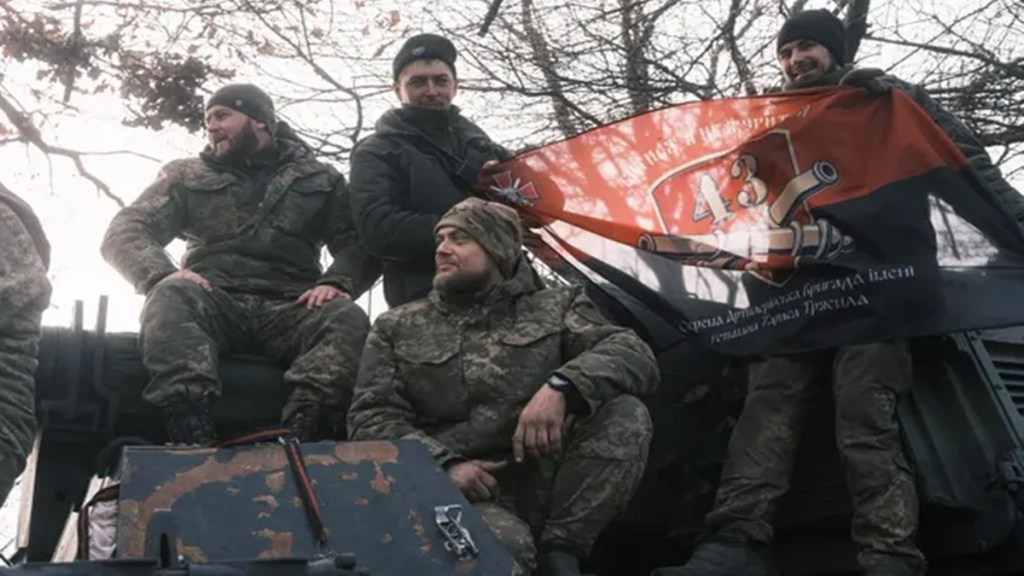By Rajoli Siddharth Jayaprakash
Since the first round of sanctions imposed by the West, nine years on, nine EU rounds of sanctions later, Russia‘s stance on Ukraine has remained undeterred. In the previous round of sanctions, steel products manufactured in third countries using Russian steel would attract a ban from September 2023. Price caps on oil have been set on two ranges, for petroleum products traded at discount to crude oil is set at $45 and for petroleum products traded at premium to crude set at $100, on January 5th. The bank of Moscow and Dalnevostochny bank are subject to a full transaction ban. All products with the potential for dual-use function have been sanctioned. Despite these sanctions, discussions on the 10th round of sanctions are also underway in Brussels.
Also Read: Ukraine says fighter jets and long-range weapons ‘resolved’ as Zelenskiy tours Europe
Sanctions are an efficient pawn for the West as it does not involve direct confrontation with a nuclear Russia. But the potency of sanctions is questionable, especially in the case of Russia. In the early sanctions imposed by the US, EU, Canada, Australia and New Zealand, individuals were sanctioned who were involved in Russia’s operations in Crimea and the Donbas, asset freeze and travel bans. Sectoral sanctions-energy, defence, financial services- was imposed in the aftermath of the gunning down of Malaysia Airlines flight 17. Further sanctions were imposed on Russian oligarchs and state-owned companies, companies involved in constructing the Nordstream 2 pipeline.
However, despite the early sanctions, we see that Moscow’s political economy was re-configured so that “Rent producing” and “Rent dependent” sectors were created to soften the blow of the sanctions. The rent-producing sectors were the sectors that churned in profits- Oil, Gas, mineral extraction firms, agribusiness, construction of nuclear power generation machinery firms and defence enterprises. These sectors were profitable because of the global demand. The sanctions imposed on Russia until 2022 were not uniform, and times were not complied with. For example, the US imposed sanctions on Gazprom, Novatek and Rosneft. However, the EU did not sanction them initially. Secondly, several billionaires and associates were sanctioned by the US but not the EU. Important individuals such as Vladimir Yakunin, Sergei Ivanov, and more than ten billionaires were not sanctioned by the UK and EU.
Furthermore, the grandfathering provision in the EU allowed for projects agreed upon in the past with EU member states to be executed despite the sanctions. Therefore, profits were able to be generated. These profits were circulated to the rent-dependent sectors- automotive industry, oilfield services, oil and gas parts, shipbuilding, Byudzhetniki (state service employees and retirees)
The rent-dependent sectors before 2014 depended on Western investments and markets for acquiring goods and services. For example, consider the oil and gas equipment industries, ExxonMobil. BP, Total and Statoil signed deals with Rosneft and Gazprom to extract oil from the Bazhenov shelf in the Western Siberian basin. Whilst Russia does have drilling equipment and oilfield services for onshore oil exploration. Still, it is only sustainable for the next four decades, as onshore oil reserves are depleting. Therefore, offshore oil exploration and extraction require high-end equipment and mapping software. In the case of offshore drilling, there is a requirement for advanced submersibles. Until 2014 Russia depended on Western companies to purchase equipment for oil exploration and extraction in the arctic and the Bazhenov shelf.
Also Read: Western sanctions will not disrupt India-Russia defence partnership: BrahMos chief
Despite the Western companies leaving, drilling equipment is provided by China and South Korea. Russia is finding new partners in the exploration of oil. India’s ONGC Videsh has a participating interest (PI) in Sakhalin-1, and Qatar purchased a 19% stake in Rosneft. Import substitution was emphasized profoundly in the National security doctrine of 2015 to build resilience from further sanctions hitting the economy. Development of the Russian far East was re-emphasized, Zvezda shipbuilding complex was set up in the same year. The former president Dimitri Medvedev stated that the goal of such actions was not to deglobalize Russia from the global supply chains but rather to re-globalize; veering away from the European markets to the Asian markets; fostering stronger ties with the nations of the Global South, middle powers such as India, Turkey and Brazil, and with partners such as China.
This re-configuration of Russian foreign and trade policy is resulting in an increased presence of Chinese firms in Russian markets. In the automobile sector, 11 out of 14 automobile players in Russia are Chinese. There is a strong dominance of Chinese digital payment platforms in Russia. Russians travelling abroad use China’s UnionPay. Due to the sanctions regime, one can observe the share of transactions of the dollar and Euro have declined from 52% to 34%. From 35% to 19%, respectively. In comparison, the share of the Yuan transactions has shot up from 12.3% to 32.4%. This is resulting in the de-dollarization of the Russian economy and evolving into the Yuanization of the Russian economy. Russia’s growing dependence on the Yuan is resulting in the Yuan transforming into an International reserve currency.
However, this growing dependence is concerning. According to Alexandra Prokopenko, “China has failed to help Russia circumvent the sanctions” she further finds that despite China not joining the sanctions, they have complied with them. This observation is not unfounded as several Belt and road initiative projects and multi-modal transit projects, such as the middle corridor between China and Turkey, bypass Russia as China needs to access its European markets. Despite this fact, Russia’s economic dependence on China is only growing; with increasing sanctions imposed on Russia by the West, Moscow will have to keep in mind the geo-economic interests of Beijing.
The author is a Doctoral candidate in the Centre for Russian and Central Asian studies, Jawaharlal Nehru University, New Delhi.
Disclaimer: Views expressed are personal and do not reflect the official position or policy of Financial Express Online. Reproducing this content without permission is prohibited.


